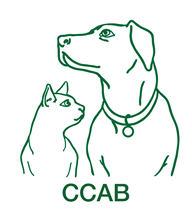Problem dog?
Behavioural problems
in dogs arise for many different reasons, and many different factors
may be involved. Gaining a good understanding the impact of these
factors and why they cause your dog to behave in certain ways is
crucial to successful long-term behavioural change. Merely trying
to stop an undesirable behaviour by trying to coerce your dog into
suppressing it is unlikely to be successful in the long-term, and
may actually worsen many behavioural problems.
Therefore, it is important to obtain the right kind of professional
help from an appropriately qualified and experienced behaviourist.
Helen Taylor is
a qualified, accredited and highly experienced animal behavioural
therapist and has been treating dog behaviour problems throughout
most of Dorset, and parts of South Somerset, South Wiltshire and
West Hampshire since 2004. Helen is a full member of the APBC
(the Association of Pet Behaviour Counsellors) and the Association
of Pet Dog Trainers (APDT -
881). She is also a Certificated Clinical Animal Behaviourist (CCAB/ASAB)
and she is on the Animal Behaviour and Training Council (ABTC)
Register of Clinical Animal Behaviourists. She is recommended by
vets throughout the area and recognised by insurance companies and
animal charities for the treatment of all types of behavioural problems
in dogs. Until the end of 2011, she also ran puppy and dog training
classes in the area but now concentrates mainly on treatment of
dog behavioural problems. Helen helps dog owners solve their dogs'
behaviour problems using entirely force-free, reward-based methods.
Aversive or punishment-based methods are never used. To understand
why, see Why using punishment can make
matters worse. The once popular "pack leadership"
or "dominance" models
are also unlikely to help you solve your dog's behaviour problems.
Choosing a
behaviourist
Under UK law as
it stands at present, technically anyone can call themselves a dog
behaviourist, dog behavioural therapist, dog behavioural counsellor
or dog behavioural specialist. To add to this problem, as in many
industries there are some organisations that allow members to use
letters after their names, but are actually just "paper"
organsitations where membership is simply a matter of paying a fee
and completing an application - no supporting evidence is requested
(meaning that anyone can join if they are prepared to lie). If a
training or behaviour organisation is not recognised by the ABTC,
this means that the organisations membership requirements did not
meet the ABTC's requirements at any of the levels of professional
competence.
In an attempt
to address this problem the government study group Companion Animal
Welfare Council (CAWC) suggested
that a regulatory body be set up, and the Animal Behaviour and Training
Council (ABTC) was formed. The ABTC is the "umbrella"
organisation for all recognised/regulated animal behaviour and training
organisations and includes (among others) all the major charities
and veterinary organisations, ASAB, the APBC, UKRCB
and APDT.
In practice,
when looking for a behaviourist for a dog this means looking for
someone who is a member of the APBC or UKRCB and, ideally, also
a CCAB (and members will have these letters after their name).
It is also worth
checking whether a behaviourist is actually a member of the organisations
they claim to be by checking on the organisation's list of members
(which will be on their website).
The role of dog
trainer and professional behaviourist are entirely different, and
require completely different levels of education and certification,
roughly equivalent to the difference between a vet and a veterinary
nurse. In practice, many if not most behaviourists are also dog
trainers, but the reverse is not usually true. Dog trainers (unless
they are also qualified behaviourists) do not require any formal
education and dog trainers are not qualified to treat behavioural
problems. This does not mean that they are not good dog trainers.
A few veterinary surgeons are also fully-qualified behaviourists
("Veterinary Behaviourists") in their own right. If looking
for a pet dog trainer, look for someone who is a member of the APDT
UK. Note there is also a US organisation of the same name that lacks
any formal entry requirements - UK APDT members always have a registration
number quoted along with their members - eg Member APDT (881) and
will be on the APDT's list of members.
A dog that jumps
up, pulls on the lead, runs away on walks, doesn't come back when
called or has no manners with people or other dogs is hard work,
can be an embarrassment and is no fun to own! A dog that shows aggression
towards its owners, other people or other animals is a liability
and can be the cause of a great deal of stress - and even legal
problems - for its owners. When a dog uses any level of aggression
it is almost always because it thinks it (or something it values)
is under some sort of threat, and is - to the dog - a normal and
reasonable response to that threat! in some cases this may be appropriate
(ie the dog is actually being threatened) but in many cases the
dog is seeing threat where there is none. The vast majority of aggression-related
problems cannot be solved without professional help, and may easily
be made worse by doing the wrong thing, such as punishing the dog
for being aggressive.
Attendance at
a well-run puppy class can provide an excellent start to a puppy's
first year but, for clients wanting more focused help on one or
two problem areas, a "start-right" visit with a new puppy
can be very helpful, and can occur before puppy has had all his
vaccinations.
Helen Taylor Dog
Training & Behaviour operates throughout Dorset, South Somerset,
North Hampshire and West Wiltshire, including Blandford Forum, Gillingham,
Shaftesbury, Sherborne, Sturminster Newton, and Wimborne. Other
services are available throughout the region, including the
following areas: Blandford Forum, Bournemouth, Castle Cary, Dorchester,
Ferndown, Frome, Gillingham, Martock, Mere, Poole, Ringwood, Salisbury,
Shaftesbury, Shepton Mallet, Sherborne, Sturminster Newton, Verwood,
Warminster, Wilton, Wimborne,
|
